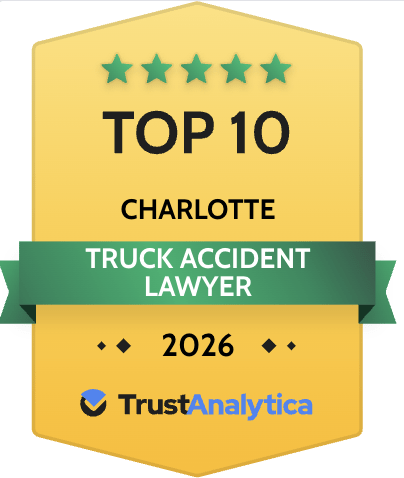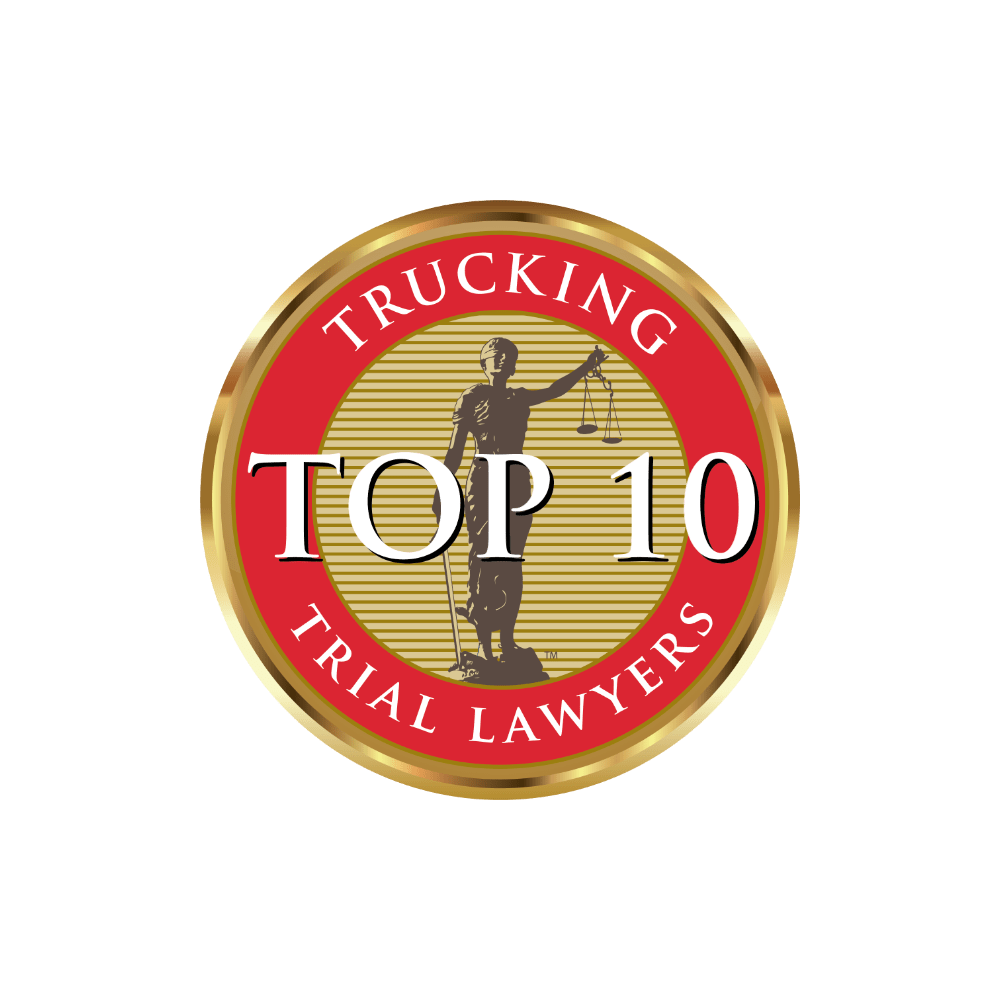A semi-truck accident can turn a routine drive into a life-altering event. With their enormous size and weight, these vehicles can cause significant harm to other drivers, pedestrians, and cyclists. Unlike typical car crashes, these accidents often involve multiple responsible parties, including the truck driver, trucking company, and even equipment manufacturers. Securing fair compensation requires a thorough investigation and a strong legal strategy.
South Carolina follows a modified comparative negligence rule, meaning that if you are found to be less than 51% at fault, you may still be eligible for compensation. However, your compensation will be reduced by your percentage of fault. This makes it essential to have experienced legal representation on your side to prove that you were not at fault and to secure a fair settlement.
This guide will walk you through the common causes of semi-truck accidents, the importance of legal representation, the compensation you may be entitled to, and the steps to take after an accident to protect your rights.
The Dangers of Semi-Truck Accidents
Semi-trucks are particularly hazardous to other vehicles, pedestrians, and cyclists due to their size, weight, and the nature of their operation. The sheer mass of a semi-truck means that collisions with smaller vehicles can result in severe damage and catastrophic injuries, if not fatalities. Additionally, the large and bulky nature of these trucks makes them more difficult to maneuver, especially in tight spaces or high-traffic areas.
Common Accident Scenarios Involving Semi-Trucks
- Rear-end collisions: Semi-trucks require more distance to stop. When a truck follows too closely or fails to react in time, it can result in a rear-end collision that may cause severe damage or injuries.
- Underride accidents: These occur when a smaller vehicle collides with the back or side of a semi-truck and slides underneath the trailer, often leading to devastating injuries.
- Lane change accidents: Semi-trucks have large blind spots, particularly on the sides and rear, making it difficult for drivers to see other vehicles when changing lanes.
- Rollovers: Due to their high center of gravity, semi-trucks are prone to tipping over, especially when making sharp turns or traveling too fast.
Risk Factors That Make Semi-Trucks Particularly Dangerous
- Limited visibility: Large blind spots along the sides, in front of the cab, and directly behind the trailer increase the likelihood of accidents.
- Restricted maneuverability: Semi-trucks require more space to turn and have longer stopping distances compared to smaller vehicles.
- Driver fatigue: Long hours on the road and pressure to meet tight delivery deadlines can lead to driver fatigue, slowing reaction times and impairing judgment.
- Improperly loaded cargo: Unsecured or overweight cargo can shift during transit, causing the truck to become unbalanced or leading to a rollover accident.
Why You Need Legal Representation
Navigating a semi-truck accident case without experienced legal representation can be overwhelming. Unlike standard car accidents, semi-truck accidents involve multiple parties, federal and state regulations, and aggressive insurance companies looking to minimize payouts. Without proper legal guidance, victims may struggle to gather evidence, prove liability, and negotiate a fair settlement. An attorney ensures that all responsible parties are held accountable and that victims receive the compensation they deserve.
Challenges in Semi-Truck Accident Cases
One of the biggest challenges in semi-truck accident cases is dealing with aggressive insurance companies. Trucking companies and their insurers often employ teams of lawyers whose primary goal is to reduce or deny compensation. They may argue that the victim was partially at fault, dispute the severity of injuries, or offer a lowball settlement that does not cover medical expenses, lost wages, or pain and suffering. Without an attorney, victims may accept unfair settlements, leaving them financially burdened in the long run.
Proving liability among multiple parties is another major hurdle. Unlike typical car accidents, where liability is usually between two drivers, semi-truck accidents can involve multiple responsible entities. The truck driver may have been negligent, but the trucking company could also share liability if they failed to enforce safety protocols, pressured the driver to meet unrealistic deadlines, or neglected vehicle maintenance. Additionally, if a faulty truck component or improper cargo loading contributed to the accident, equipment manufacturers or third-party logistics companies may also be liable. Determining fault requires a thorough investigation, and an attorney has the resources to uncover evidence from multiple sources.
Investigating compliance with trucking laws is crucial in these cases. South Carolina follows both federal and state trucking regulations, including Hours of Service (HOS) rules, maintenance requirements, and weight restrictions. If a trucking company or driver violated these laws, it could strengthen the victim’s case. However, proving non-compliance requires access to industry records, driver logs, vehicle maintenance reports, and accident reconstruction experts—resources that an experienced lawyer can provide.
How an Attorney Can Help
A skilled truck accident attorney plays a vital role in securing fair compensation by:
- Gathering key evidence: Attorneys will collect accident reports, obtain black box data from the truck, review driver logs to check for HOS violations, investigate maintenance records, and consult accident reconstruction specialists.
- Handling legal negotiations: Dealing with trucking companies and their insurers requires legal expertise. A lawyer will advocate on the victim’s behalf, ensuring they receive fair compensation for medical expenses, lost wages, pain and suffering, and any long-term rehabilitation needs.
- Litigation support: If an insurance company refuses to offer a fair settlement, an attorney can take the case to court. With strong legal representation, victims can fight for the maximum compensation they are entitled to.
By enlisting a legal expert, truck accident victims can level the playing field and hold negligent parties accountable. Without legal support, victims risk being pressured into accepting inadequate settlements, leaving them without the financial resources needed for recovery.
Determining Liability in a Semi-Truck Accident
In South Carolina, multiple parties may be held liable for a semi-truck accident. Identifying who is at fault requires a thorough investigation into several factors. Unlike standard car accidents, where liability often falls on one or both drivers, truck accident liability can involve multiple entities, each with different responsibilities.
Potentially Liable Parties
- Truck Driver: The driver’s negligence is often a major factor in truck accidents. Speeding, distracted driving, fatigue, or impaired driving can all contribute to a collision. Truck drivers are required to follow federal and state regulations, including Hours of Service (HOS) laws, which limit how long they can drive without rest. If a driver exceeds these limits or engages in reckless behavior, they can be held accountable.
- Trucking Company: The trucking company may be liable if they failed to properly train their drivers, enforced unrealistic delivery deadlines that encouraged unsafe driving, or neglected vehicle maintenance. Many trucking companies cut corners to maximize profits, which can lead to unsafe conditions. If a company knowingly hires unqualified drivers or ignores violations, they can be held responsible for resulting accidents.
- Maintenance Providers: Trucks require regular maintenance to operate safely. If a trucking company or a third-party maintenance provider fails to inspect, repair, or service critical components like brakes, tires, or steering mechanisms, they can be held liable for an accident caused by mechanical failure. Maintenance records can often reveal whether a truck was properly maintained.
- Cargo Loaders: Improperly loaded cargo can create hazardous driving conditions. If the weight distribution is uneven, or cargo is not secured correctly, it can shift during transport, leading to rollovers or loss of control. Cargo loaders, including third-party shipping companies, may be liable if their negligence in securing a load leads to an accident.
- Truck Manufacturers: Defective truck parts, such as faulty brakes, tire blowouts, or engine malfunctions, can cause a semi-truck to crash. If an accident is linked to a manufacturing defect, the truck or parts manufacturer may be liable. Investigating recalls or known defects can help determine if faulty equipment played a role in the accident.
Key Evidence in Determining Liability
Determining liability in a semi-truck accident requires a detailed investigation. Attorneys and accident investigators rely on multiple sources of evidence to establish fault and build a strong case. Some of the most critical pieces of evidence include:
- Accident Reports: Law enforcement officers document the scene of the accident, take witness statements, and determine whether any traffic laws were violated. These reports provide a foundational record of the crash.
- Driver Logs: Truck drivers must keep logs of their driving hours to comply with HOS regulations. These records can reveal whether the driver was overworked, fatigued, or in violation of legal driving limits at the time of the accident.
- Maintenance Records: Reviewing a truck’s maintenance history can uncover evidence of neglected repairs or safety violations that contributed to the crash.
- Black Box Data: Many commercial trucks are equipped with event data recorders, or “black boxes,” which capture crucial information such as speed, braking patterns, and driver behavior leading up to the crash.
- Witness Statements: Eyewitness accounts from other drivers, pedestrians, or passengers can provide valuable insight into how the accident occurred.
- Surveillance or Dashcam Footage: Video evidence can be crucial in determining how an accident unfolded, showing details like reckless driving, lane changes, or sudden braking.
By thoroughly examining this evidence, attorneys can establish who is responsible for the accident and pursue legal action against the appropriate parties. Liability in semi-truck accidents is rarely straightforward, but with the right legal strategy, victims can secure the compensation they deserve.
Compensation Available for Victims
Victims of semi-truck accidents in Rock Hill may be entitled to various forms of compensation to help recover from the financial, physical, and emotional toll of the accident. Compensation is generally divided into economic, non-economic, and punitive damages depending on the circumstances of the case.
Economic Damages
Economic damages are tangible losses that can be quantified and documented. These damages help victims cover the direct financial impact of the accident and include:
- Medical expenses: These include emergency room visits, hospital stays, surgeries, doctor visits, rehabilitation therapy, prescription medications, and any future medical treatments needed as a result of the accident. If the injuries require long-term care, such as physical therapy or specialized treatment, those costs can also be included.
- Lost wages: If the victim is unable to work due to injuries sustained in the accident, they may be entitled to compensation for lost income. This includes wages lost during recovery and potential loss of future earning capacity if the injuries result in a disability that prevents the victim from returning to their previous job.
- Property damage: Compensation for repairs or replacement of a damaged vehicle and any other personal property affected by the accident.
- Out-of-pocket expenses: This covers additional costs related to the accident, such as transportation for medical appointments, the need for assistive devices like wheelchairs or crutches, home modifications for disability accommodations, and hiring caregivers or domestic assistance during recovery.
Non-Economic Damages
Non-economic damages compensate victims for losses that are more subjective and difficult to quantify but have a significant impact on their quality of life.
- Pain and suffering: Victims may receive compensation for the physical pain and discomfort resulting from their injuries. This includes chronic pain, long-term disabilities, and ongoing medical treatments.
- Emotional distress: Truck accidents can leave victims with severe psychological effects, including anxiety, depression, and post-traumatic stress disorder (PTSD). These mental health challenges can be just as debilitating as physical injuries.
- Loss of enjoyment of life: If the accident prevents the victim from engaging in activities they once enjoyed—such as hobbies, exercise, or social events—they may be entitled to compensation for the diminished quality of life.
- Loss of consortium: In cases where a victim’s injuries impact their relationship with their spouse or family members, compensation may be available to cover the loss of companionship, affection, and emotional support.
Punitive Damages
Punitive damages are awarded in cases where the at-fault party’s actions were particularly reckless or egregious. Unlike economic and non-economic damages, which aim to compensate the victim, punitive damages serve as a punishment for the negligent party and as a deterrent to prevent similar behavior in the future.
- When are punitive damages awarded? These damages may be available in cases involving gross negligence, such as a truck driver operating under the influence of drugs or alcohol, excessive speeding, or intentionally ignoring federal and state trucking regulations. If the trucking company knowingly encouraged unsafe practices—such as pushing drivers to exceed Hours of Service limits or neglecting necessary vehicle maintenance—they may also be subject to punitive damages.
Punitive damages can significantly increase the overall compensation a victim receives, particularly when the at-fault party’s conduct was reckless and avoidable.
Steps to Take After a Semi-Truck Accident in Rock Hill, SC
If you are involved in a semi-truck accident, follow these steps to protect your rights:
- Seek Medical Attention: Even if injuries seem minor, some issues may not be immediately apparent.
- Call Law Enforcement: A police report is essential for insurance claims and legal proceedings.
- Document the Scene: Take photos of vehicle damage, skid marks, road conditions, and visible injuries.
- Gather Witness Information: Collect contact details from any witnesses.
- Avoid Admitting Fault: Do not discuss fault with anyone at the scene or insurance adjusters.
- Consult a South Carolina Truck Accident Attorney: A lawyer can guide you through the legal process and protect your rights.
Contact a South Carolina Truck Accident Lawyer Today
If you or a loved one has been involved in a semi-truck accident in Rock Hill, SC, you need a dedicated legal team to fight for your rights. Recovering from a serious accident is overwhelming, but you don’t have to do it alone. Our attorneys at Auger and Auger understand trucking accidents and will work tirelessly to ensure you receive the full compensation you are entitled to.
We are here to guide you every step of the way, from gathering evidence and negotiating with insurance companies to taking your case to trial if necessary. Your well-being and financial recovery are our top priorities, and we won’t stop until you get the justice you deserve.
Don’t wait to take action—contact us today for a free consultation. Let us review your case, explain your legal options, and provide the support you need during this difficult time. The sooner you reach out, the sooner we can begin fighting for the compensation that will help you move forward with confidence.

















